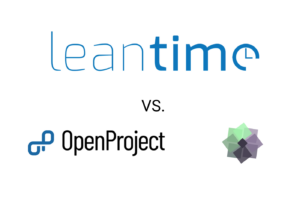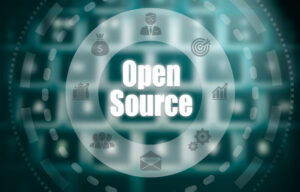Why the Future of Project Management Needs to Be Open Source: A Neurodivergent Perspective
- Open source project management tools provide cost-effective solutions for organizations of all sizes.
- Flexibility and customizability make these tools ideal for neurodivergent individuals.
- Transparency in open source software enhances security, building trust among users.
- Community support fosters innovation and development tailored to diverse needs.
- Vendor independence ensures digital sovereignty and continuity for users.
The Open Source Advantage: More Than Just Cost Savings
Open source software has been gaining tremendous momentum in recent years. Popular tools like Kanboard, OpenProject, Taiga, and Leantime have demonstrated that open source project management solutions can compete with—and often surpass—their proprietary counterparts. But what exactly makes open source the superior choice for the future of project management?
Cost-Effectiveness and Accessibility
The most immediate advantage of open source project management tools is their affordability. While proprietary solutions often come with hefty per-user licensing fees that can quickly add up, open source alternatives are typically free or significantly less expensive.
“Open source project management tools eliminate expensive per-user licensing fees that can hinder collaboration within organizations,” notes OpenProject, one of the leading providers in this space.
This cost reduction democratizes access to sophisticated project management capabilities, making them available to:
- Small businesses and startups with limited budgets
- Educational institutions serving neurodivergent students
- Non-profit organizations supporting the neurodiversity movement
- Public sector agencies seeking to improve services for all citizens
For neurodivergent individuals who often benefit from specialized tools but may face financial barriers, this accessibility is particularly meaningful. It ensures that economic constraints don’t prevent access to tools that can significantly improve productivity and work satisfaction.
Customizability and Flexibility: A Neurodivergent Necessity
Perhaps the most compelling aspect of open source project management tools for neurodivergent users is the unparalleled flexibility they offer. With access to the source code, organizations and individuals can tailor the software to accommodate specific cognitive styles, sensory preferences, and executive functioning needs.
In one of our previous articles we called out that, “Users can add, remove, or adjust features as needed, integrating with existing systems and adapting quickly to evolving business needs, which directly boosts productivity and efficiency.”
For individuals with ADHD, autism, or dyslexia, this customizability is not merely a convenience—it’s a necessity. Consider these practical applications:
- For ADHD users: Modifying interfaces to reduce distractions, implementing custom notification systems that work with individual attention patterns, or creating specialized visual task prioritization features.
- For autistic users: Adjusting sensory aspects like colors and sounds, creating consistent and predictable workflow patterns, or implementing detailed categorization systems.
- For dyslexic users: Incorporating text-to-speech functionality, customizing fonts and text spacing, or developing visual workflow representations.
Proprietary tools rarely offer this depth of customization, forcing neurodivergent users to adapt to the software rather than having software adapt to them—a fundamental mismatch with neurodiversity-affirming approaches.
Transparency and Security: Building Trust in Digital Tools
In an era of increasing concern about data privacy and security breaches, the transparency inherent in open source project management tools provides a significant advantage. With the source code fully accessible, organizations and independent experts can audit the software for vulnerabilities or backdoors, ensuring greater security and trustworthiness.
“Transparency eliminates reliance on vendor promises and reduces the risks associated with undisclosed software bugs or data privacy issues,” explains Easy Redmine, highlighting a critical benefit for organizations dealing with sensitive information.
For neurodivergent users who may already experience heightened security concerns or anxiety about digital tools, this transparency offers reassurance that their data and work products are protected. It also aligns with the value many neurodivergent individuals place on honesty and transparency in all interactions.
Community Support and Innovation: The Collective Brain at Work
One of the most powerful aspects of open source solutions is the vibrant community that develops around them. These diverse communities contribute to continuous improvement through bug fixes, feature enhancements, and innovative approaches that might never emerge from a single company’s development team.
ZenHub notes that “The collaborative nature of open source encourages sharing of best practices and innovative features that benefit all users, accelerating the pace of technological advancement.”
For neurodivergent contributors, open source communities can provide a welcoming space where their unique perspectives and problem-solving approaches are valued. These communities often operate with more flexible communication styles and greater acceptance of diverse thinking patterns than traditional corporate environments.
This inclusive approach to development means open source project management tools are more likely to incorporate features that address the specific needs of neurodivergent users—not because they represent a profitable market segment, but because neurodivergent developers themselves identify and implement solutions to challenges they experience.
Digital Sovereignty and Vendor Independence: Freedom to Choose
Vendor lock-in—becoming dependent on a single provider’s ecosystem—is a significant risk with proprietary project management tools. If a company changes its pricing model, discontinues features you rely on, or goes out of business entirely, your entire workflow can be disrupted.
Open source solutions empower organizations to avoid these risks and maintain control over critical infrastructure. As OpenProject explains, “This independence ensures that political or business decisions made by foreign governments or large tech monopolies do not threaten access to essential project management tools.”
For neurodivergent individuals who may rely heavily on specific features or interfaces that align with their cognitive style, the stability and continuity offered by open source tools can be crucial. The ability to continue using and maintaining software even if the original developers move on provides a level of security that proprietary tools simply cannot match.
Interoperability and Integration: Building Cohesive Systems
Open source tools are designed with compatibility in mind, facilitating seamless integration with diverse platforms and systems. This interoperability supports streamlined workflows and easier data sharing compared to closed, proprietary ecosystems.
According to Easy Redmine, open source project management tools excel at “supporting streamlined workflows, improved productivity, and easier data sharing” across platforms.
For neurodivergent knowledge workers, who often develop personalized systems combining multiple tools to manage their work, this interoperability is invaluable. It allows for the creation of bespoke productivity ecosystems that play to individual strengths while mitigating challenges—combining, for example, specialized time management applications with task visualization tools and communication platforms.
Comparing Open Source vs. Proprietary Project Management Tools
| Feature | Open Source | Proprietary Tools |
|---|---|---|
| Cost | Free or low-cost | Often expensive, per-user fees |
| Customization | Full source code access; highly customizable | Limited customization |
| Transparency | Source code visible to all | Opaque, vendor-controlled |
| Security | Auditable by anyone, community-vetted | Dependent on vendor disclosures |
| Community Support | Community-driven, frequent updates | Vendor-driven, slower response |
| Vendor Lock-in | No lock-in; digital sovereignty | High risk of lock-in |
| Integration | High compatibility and adaptability | Often restricted or paywalled |
Practical Takeaways for Neurodivergent Knowledge Workers
If you’re a neurodivergent individual looking to leverage open source project management tools to enhance your productivity, here are some actionable steps:
For ADHD Individuals:
- Experiment with visual management systems like Kanban boards in tools like Leantime that allow you to visually track task progress.
- Customize notification systems to provide just enough prompting without overwhelming your attention.
- Create templates for recurring tasks to reduce the executive function load of starting new projects.
- Contribute your insights to open source communities about features that would help with time blindness or task initiation challenges.
For Autistic Individuals:
- Modify interfaces to reduce sensory overload by adjusting colors, removing animations, or simplifying layouts.
- Implement detailed categorization systems that allow for precise organization according to your specific logic.






